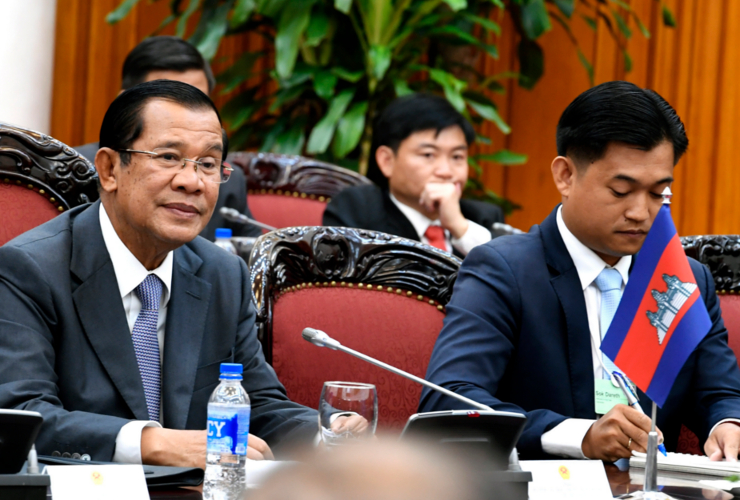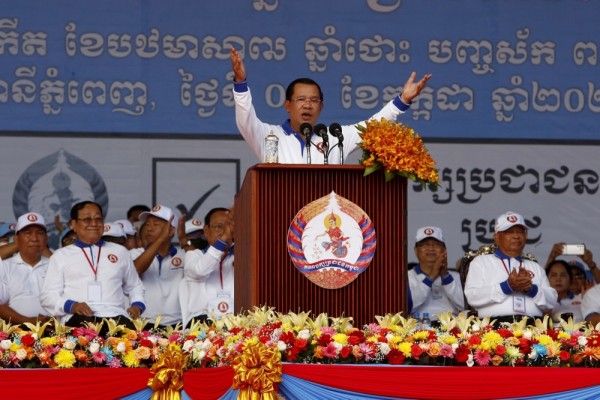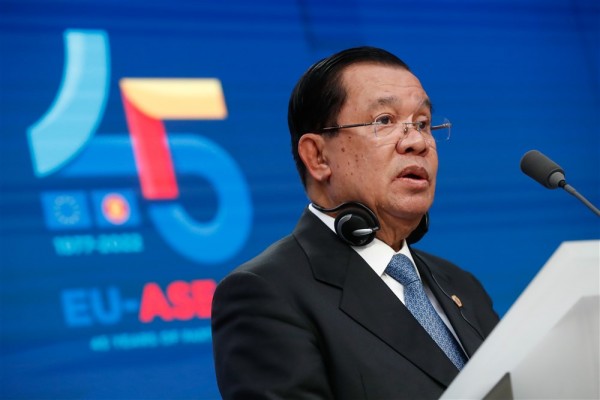Last month, Cambodia’s Information Ministry took to the Internet to step-up its public warnings to news organizations in the Kingdom over the dissemination of so-called “fake news”.
Pledging stricter enforcement of the country’s media regulations, director-general of the General Department of Information and Broadcasting Phos Sovann said that his office would renew its efforts to revoke the licenses of print and online media outlets found guilty of spreading disinformation that threatened “national security”.
Speaking in a Facebook video post, he stressed that his office would come down hard against outlets that stepped out of line, adding that media that refuse to obey ministerial orders to remove “fake news” or post corrections to stories with false or misleading information would be subject to legal action.
“The ministry will issue a public announcement when it revokes the licences of online or print media outlets that violated the terms of their licences or caused chaos in society by spreading misinformation”, Sovann said, according to media reports.
Sovann said that outlets publishing news in Cambodia not officially registered with the ministry, or not using the country’s .kh Internet domain, could have their IP address blocked and face the threat of closure.
The warning was the latest is a series of public statements by the government of Hun Sen in the past year aimed at enforcing the May 2018 “Prakas” (regulation). This 10-article ministerial directive, introduced months ahead of the 2018 general election, handed authorities in Cambodia far-reaching powers to monitor and control all online content, including news websites and social media.
Its stated aim was “obstructing and preventing” the publication of content “intended to create turmoil leading to undermine national defence, national security, relation with other countries, national economy, public order, discrimination and national culture and tradition”. At the time, three ministries established specialized units to monitor social media posts. A second “fake news” directive issued in July 2018 stated that violators face jail time of two years and fines up to $1,000 for publishing disinformation.
The poorly defined regulations were widely condemned by journalists and NGOs as a blatant attempt to restrict press freedom and stifle critical media in the run-up of the 2018 vote.
After the total victory of Hun Sen’s Cambodian People’s Party (CPP) in the election, in which the party won every single seat, observers had hoped that the government’s crackdown on independent press and restrictions on free speech would be relaxed. However since then, its attitude towards information it deems false or dangerous appears to have softened little.
In a country where the space for media to hold the government to account has been radically reduced over the past few years, press freedom advocates see last month‘s renewed efforts to enforce the directives as a sign of the government’s continued intention to silence critical voices that remain in the country.
Stifling criticism
“This latest warning is an unmistakable sign that the government is hell-bent on tightening the noose around those who dare defy state and official narratives”, Tess Bacalla, executive director of the Southeast Asian Press Alliance (SEAPA), a media freedom organization, told the International Press Institute (IPI) in an interview.
She said that while there have been similar threats in the past, such as in the lead up to the 2018 election, the information minister’s most recent statements “raise the bar in government’s suppression tactics against the media”.
“Criminalizing ‘fake news’ or the publication of content, online or otherwise, that the government believes poses threats to national security and social order is part of a growing state arsenal of tools to suppress free speech”, she said.
In using such methods, she said, Cambodian Prime Minister Hun Sen has taken a page out of the playbook of other authoritarian leaders to “turn fake news on its head to silence real or imagined critics and undermine the work of independent journalists”.
“Using the ‘fake news’ trope has become a convenient tool to crush all opposition”, she added.
The ability of the government to act as the sole arbiter of what constitutes “fake news” and issue take-down or correction notices accordingly is a concern shared by other press freedom groups.
Sek Sophal of the Cambodian Center for Independent Media said that the broadly defined labels of “fake news” and “threat to national security” made it easy for the government to use such allegations against its critics.
“To my knowledge, there has been no official definition of fake news in Cambodia”, he told IPI. “There is an urgent need to tackle this issue because it is easy to frame or delegitimize any piece of information simply by calling it ‘fake’ even though it is not.
He added: “Those with power can easily interpret and manipulate the term in their favour. [The government] accuses people of disseminating ‘fake news’ only to silence the critical voices.”
Wider erosion of media freedom
While such fears have been dismissed by the government as overblown, the government’s threats to revoke licenses and shut websites have to be seen against the backdrop of recent events.
In the past two and a half years the regime of Hun Sen has undertaken a sustained campaign to silence critical voices in the country. In November 2017, Cambodia’s highest court dissolved the country’s main opposition party, the Cambodia National Rescue Party (CNRP). The leader of the party was arrested and spent over a year in jail.
Meanwhile, in the run-up to the July 2018 general elections the independent English-language newspaper Cambodia Daily was forced to close down after being hit by the government with a disputed tax bill of over $6 million. After the newspaper’s closure, its website was arbitrarily blocked.
Several other independent media outlets and radio stations were shuttered, including U.S.-funded Voice of America and Radio Free Asia and dozens of Khmer-language stations that aired news reports critical of the prime minister.
In May 2018, the last major independent media outlet in the country, the Phnom Penh Post, was sold to a Malaysian investor with links to Hun Sen, leaving pro-government outlets dominating the local language media and television channels.
Extending control
This shortage of independent and reliable information in Cambodia has led to the proliferation of small online media outlets not registered with the Information Ministry that have, at least until now, existed beyond the reach of the government. It is these digital platforms which now offer the best place for citizens to express their concerns.
In a country where 14 million of the 16.5 million people use the Internet, and where the majority of citizens get their news online, it this small pocket of resistance which the regime appears to be targeting with its “fake news” campaign.
In doing so, the regime is simultaneously shrinking the spaces available for people to publicly question its rule, while also extending its reach further into the digital realm, amassing more power to monitor and censor voices it deems a threat. Worryingly, Cambodia is not alone in using new anti-“fake news” laws to achieve this end.
While there may be a genuine need to tackle disinformation in Cambodia, the battle being waged against “fake news” is merely the latest front in the government’s wider campaign against all forms of criticism – a campaign it is clearly winning.



